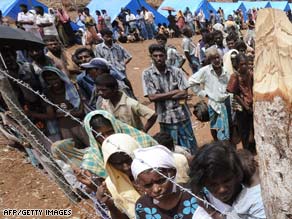Man, age 72, tied to SoCal serial killings
By THOMAS WATKINS, Associated Press Writer Thomas Watkins, Associated Press Writer Fri May 1, 10:14 am ET 
LOS ANGELES – Larry Manchester first saw the body on Feb. 18, 1976.
The woman, a 67-year-old retired school administrator, was dead inside her red-and-black '65 Chevy Chevelle, two blocks from her west Los Angeles apartment.
The young homicide detective popped open the trunk and saw Elizabeth McKeown lying on her side. She was naked from the chest down. She'd been beaten, raped and strangled three days earlier.
Despite his efforts and a $25,000 reward, Manchester and his colleagues could not solve the killing. For 33 years and long after he retired, Manchester, now 64, berated himself. He would clip newspaper stories about similar murders in hopes of spotting a clue.
On Thursday, the Los Angeles Police Department announced it had solved McKeown's case. The suspect, they said, was likely responsible for the murders of as many as 30 women, dating to the mid-1950s, which would make him the most prolific killer in city history.
"I was crying," Manchester said of his reaction when he learned John Floyd Thomas Jr., 72, had been arrested. "It was remarkable that they caught him."
Thomas, an insurance claims adjuster, is charged with two killings after cold-case detectives matched his DNA to the McKeown murder and to the 1972 strangling of Ethel Sokoloff, 68, who was sexually assaulted.
The LAPD said it also has partial DNA matches to two other killings, and he is a suspect in three killings in Inglewood. The Los Angeles County Sheriff's Department is looking at him in at least two other cases.
"We believe that Thomas is likely connected to many more sexually motivated murders," Deputy Chief Charlie Beck said.
Thomas, who was being held on $1 million bond, could not be reached for comment. The public defender's office said he had yet to be assigned an attorney.
Because the killings occurred before the 1977 reinstatement of the death penalty, prosecutors are seeking life in prison without parole. If Thomas is charged in later cases, they may seek death.
In Los Angeles in the mid-1970s, a man police dubbed "The Westside Rapist" entered the homes of elderly women who lived alone, raped them and choked them until they passed out or died. Beck said police believe Thomas is the rapist and may be involved in scores of unsolved rapes.
The attacks stopped in 1978 — the year Thomas went to prison for the rape of a Pasadena woman.
He may also be involved in killings beyond Los Angeles. A decade later and 40 miles to the east, at least one elderly women in Claremont was found raped and killed. The Los Angeles Times reported Thomas was being investigated for the death of five elderly women in that city, but sheriff's spokesman Steve Whitmore said only one case was being looked at there.
The victims in all 30 cases under review were older white women, mostly of lower incomes and often widows living alone. All were sexually assaulted and most were strangled.
Police said Thomas, who is black, likely targeted the women because of their vulnerability and because they all lived alone. Cold-case detective Richard Bengston said serial killers frequently select victims of a different ethnicity.
Thomas had been twice convicted of sexual assault, and as a registered sex offender, he was required to check in annually with police.
During one visit in October, officers took a saliva swab to collect his DNA, which is a requirement for all sex offenders. Police weren't sure why he had not given a sample sooner.
Police Chief William Bratton and other officials credited Proposition 69, a voter-approved initiative that requires convicted felons and certain arrestees to submit DNA samples that are stored in a statewide database.
DNA and fingerprinting are the most important tools at a cold-case detective's disposal, Bengston said. When the killings were first investigated, there was no central computer system to quickly flag possible connections between crimes, and detectives relied on teletypewriter printouts and monthly meetings to exchange information.
Thomas was arrested at his South Los Angeles apartment on March 31, authorities said. Soon after, he resigned from his job with the State Compensation Insurance Fund in Glendale.
Born in Los Angeles, Thomas was 12 when his mother died. He was raised by an aunt and godmother and joined the Air Force in 1956. He was considered sloppy and late and was dishonorably discharged, according to the Times, which first reported the story.
In 1957, he was convicted of burglary and attempted rape in Los Angeles and sentenced to six years in prison. After his release, parole violations sent him back behind bars until 1966.
The allegations about Thomas stunned a friend, Earl Ofari Hutchinson, prominent host of the Los Angeles Urban Policy Roundtable and a commentator and author of books on the black experience in America.
"Shocked, shocked, shocked," said Hutchinson, who had known Thomas since about 1989. "He was very engaging, very involved, seemed very informed."
He said Thomas is married and has children.
Los Angeles police are still investigating at least a dozen other murders connected to an unidentified serial killer who has been dubbed the "Grim Sleeper."
___
Associated Press writers John Antczak and Robert Jablon contributed to this story.


 பெட்டகம்
பெட்டகம்